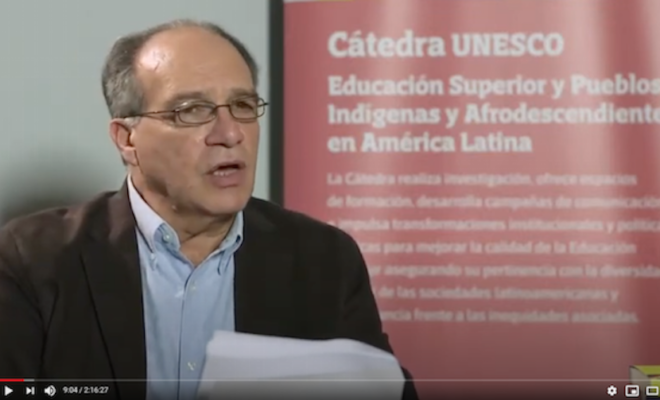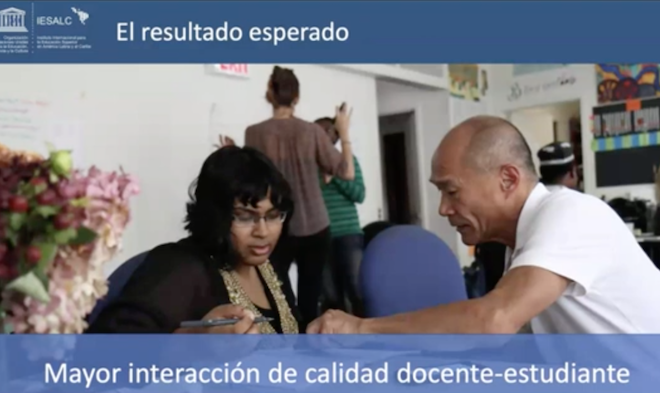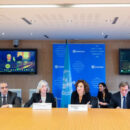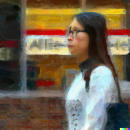The challenges posed by racism in higher education in Latin America

On Thursday April 16, 2020, the series of webinars dedicated to the UNESCO Chairs in Higher Education offered one presented by Professor Daniel Mato, committed to analyze the challenges that racism poses to higher education in Latin America today.
“We are not aware of the importance of these challenges or of the importance of taking action to end these problems,” says Mato in the invitation to the Racism and Higher Education Webinar, which will take place on the IESALC website.
In his speech, Mato referred to the work of the Red de Educación Superior y Pueblos Indígenas y Afrodescendientes en América Latina, Red ESIAL (Network of Higher Education and Indigenous and Afro-descendant Peoples in Latin America), which has managed to bring together 60 higher education institutions from eleven countries, in order to unify efforts and identify the challenges faced in overcoming racism in the classrooms of the assembled institutions. The IESALC, together with the Cátedra UNESCO Educación Superior y Pueblos Indígenas y Afrodescendientes en América Latina y el Caribe (UNESCO Chair on Higher Education and Indigenous and Afro-descendant Peoples in Latin America and the Caribbean), have numerous publications that can be consulted to complement the recommendations presented at this webinar by Professor Mato.
The first of the challenges is the lack of awareness of the demographic importance of indigenous and African-descendant peoples, who represent 30 per cent of the population of Latin America.
The next challenge is formed by the gaps between the rights enshrined in international instruments and in the constitutions of the countries hosting African-descendant and indigenous peoples and their expression in laws, as well as gaps in the implementation of public policies in order to respect the codes of legislation. In this way it is inevitable to have to face the challenge of overcoming systematic violations of higher education institutions.
How can we address and undertake the solution to these challenges?
The presentation of the initiative for the eradication of racism (http://unesco.untref.edu.ar/) can be found on the webinar of the challenges that racism poses in higher education in Latin America. This presentation contains very valuable information and presents important contributions to respond to the challenges that arise with this very delicate and current subject, in the century we are now living in, and the one to come.
About Daniel Mato
Daniel Mato is director of the Cátedra UNESCO Educación Superior y Pueblos Indígenas y Afrodescendientes en América Latina y el Caribe (UNESCO Chair in Higher Education and Indigenous and Afro-descendant Peoples in Latin America and the Caribbean), based at Universidad Tres de Febrero, Buenos Aires, Argentina, dedicated to promote the Initiative for the Eradication of Racism in Higher Education in Latin America, with a Network of Partners with more than 60 collaborators from 12 countries, and an inter-agency Coalition that currently gathers more than 30 HEI from Latin America.
BA in economics from the Universidad de Buenos Aires, and PhD in Social Sciences from the Universidad Central de Venezuela, Mato is author of 7 books and editor/coordinator of 20 others in the fields of cultural diversity, inter-culturality and higher education; and culture, communication and social transformation.
In addition to this webinar’s video, we are also sharing the book Educación Superior y Pueblos Indígenas y Afrodescendientes en América Latina. Colaboración intercultural: experiencias y aprendizajes (Higher Education and Indigenous and Afro-descendant Peoples in Latin America. Intercultural collaboration: experiences and learning). Sáenz Peña (Buenos Aires) EDUNTREF, 2019.
Racism and Higher Education Webinar
Presented by: Daniel Mato
New date: Thursday, April 16, 2020
Time: 12:00h EST
Place: www.iesalc.unesco.org
Timetables by country:
10:00 Costa Rica, El Salvador, Guatemala, Honduras, Mexico, Nicaragua
11:00 Colombia, Ecuador, Jamaica, Peru
12:00 Bolivia, Chile, Cuba, U.S. (EST Time), Puerto Rico, Dominican Republic, Venezuela
13:00 Argentina, Brazil, Surinam, Uruguay
16:00 Spain, France
RELATED ITEMS








